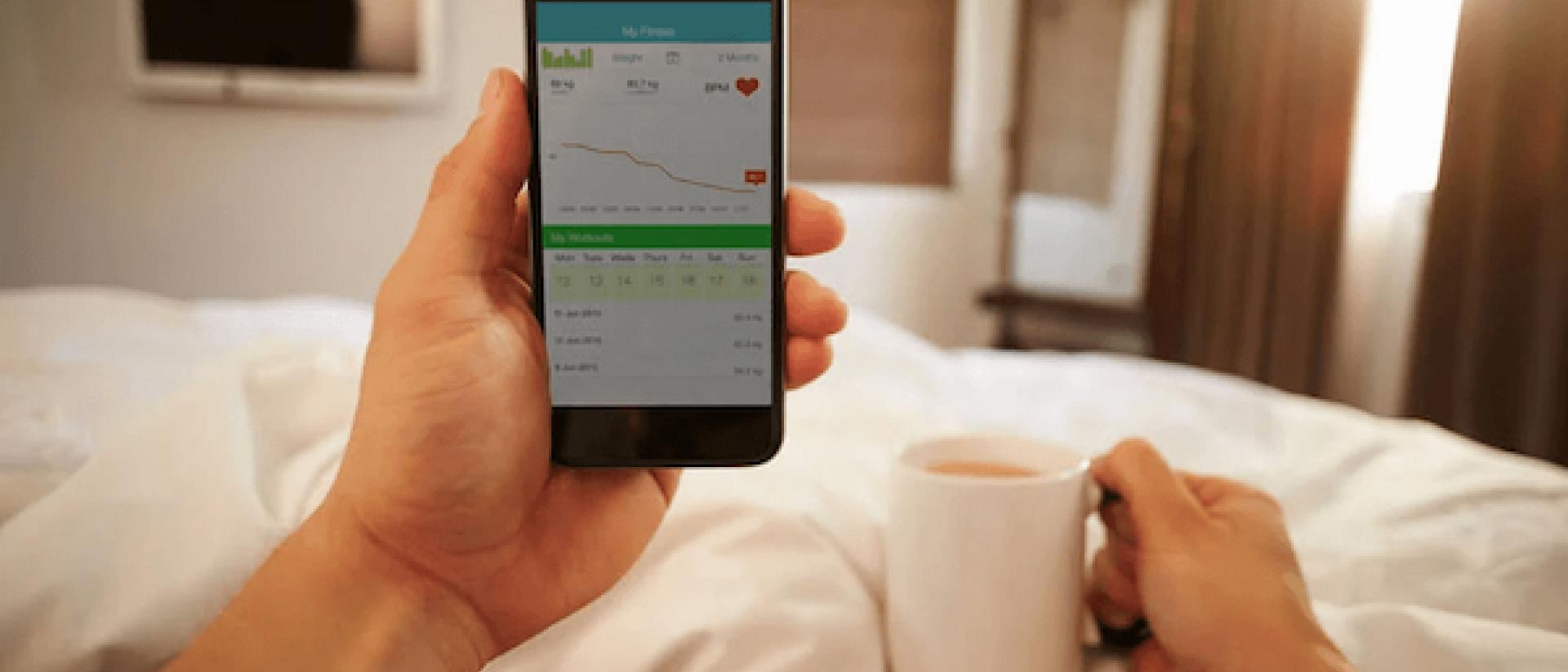
The Best Sleep Trackers For A Restful 2024
Nowadays, sleep trackers are all the rage, as they help effectively monitor their sleep cycles. This sleep tech collects sleep statistics such as heart rate variability, blood oxygen, movement, and other metrics to provide an accurate look into various sleeping patterns. If you aren’t going through the four stages of sleep as you should, you can learn more about them and the appropriate sleep statistics in our guides.
The market is constantly flooded with bracelets, rings, watches, and tracking pads – making it difficult to make an informed decision about the rightful match for you. So, how do you pick the best sleep tracker?
There are multiple things to consider: the type of tracker you want, the accuracy of results, and other features that can benefit you. We’ve done all the research into the wide variety of options so you can track your sleep in the way that best suits you. Keep reading to learn about the best sleep trackers in 2024.
How To Choose The Best Sleep Tracker Device
Whatever your sleeping habits and hurdles, choosing the right tracker is vital. Here are a few factors you need to consider when faced with a wide variety of sleep trackers.
Type
Are you in the market for wearable trackers or non-wearable sleep trackers? There is an array of options for both, but they all measure your sleep duration and quality.
If you’d like something that keeps track of all your vital statistics throughout the day, a wearable tracker will be better suited to you. In 2024, there are rings, bracelets, and even earbuds up for your selection, but what you choose should be based on your preferences. For instance, side sleepers who might be bothered by a clunky bracelet might find earbuds more comfortable.
If sleep is the primary statistic you want to track, specialized, non-wearable sleep trackers will be better suited for you.
Result Accuracy
Accuracy is essential when trying to learn about your sleep trends – some products just don’t do the job as well as others. We recommend doing a little bit of research into all potential models by checking out user reviews. This will give you an idea of the general sleep-tracking experience and whether you get accurate sleep scores.
Comfort Level
This next consideration is exclusive to people looking to purchase a wrist-worn device or other wearable tracker.
While it may seem obvious, you shouldn’t purchase something that isn’t comfortable to use. Maybe it’s too bulky, or the wristband irritates your skin – either way, if it’s hindering your comfort, it’s not worth it.
Additional Features
Are you in the market for advanced sleep trackers that measure more than just your sleep efficiency? If so, there are devices for almost any use case. For example, you could purchase an incredibly sophisticated tracker used in sleep medicine studies measuring brain activity, blood oxygen saturation, or even stress levels while sleeping.
But for most people, “additional features” usually mean a built-in alarm or activity tracker. It all depends on your specific needs.
4 Best Sleep Trackers In 2024
Collecting data on your sleep habits is the best way to improve your sleep wellness. If you want to start tracking sleep data, consider these top four sleep trackers to use in 2024.
1. Oura Ring
Key Features
- Measures heart rate, blood oxygen levels, and skin temperature
- Up to 7 days of battery life
- 100 m water resistance
Best for sleepers who want to track sleep and exercise, the Oura Ring is a discreet wearable device that monitors an impressive range of sleep metrics. Easily fitting around your finger, it’s a welcome change from the other smartwatches you wear on your hand or wrist.
When analyzing sleep quality, the Oura Ring transposes data into three scores: sleep, activity, and readiness. The Oura companion app also provides over 50 guided audio activities for sleep, exercise, and guided meditations.
Pros
- Long-lasting, above-average battery life
- Sleek and lightweight design, great for travel
- Additional fitness tracker records steps and physical activity
Cons
- Full features are hidden behind a paywall
- Data can only be read on the app
- Doesn’t track workout types
2. Apple Watch Series 8
Key Features
- Tracks blood oxygen, EKG, heart rate, and body temperature
- Up to 18 hours of battery life
- Design is dust and water resistant
Compared to its predecessors, the Apple Watch Series 8 boasts advanced sleep-tracking capabilities, including REM cycle recording and sleep stage tracking. You can easily view this information on your iPhone and other iOS devices.
One of the Apple Watch 8’s best features is Sleep Focus, which limits distractions such as social media and Google alerts before your set bedtime. It also doubles as an alarm clock.
Pros
- No subscriptions required
- Tracks sleep cycles accurately
- Comes with complete smartwatch features
Cons
- Shorter battery life, must be charged frequently
- Must be paired with iPhone to track metrics
- A higher-end product on upper end of sleep tracker price range
3. Fitbit Inspire 3
Key Features
- Measures blood oxygen, body temperature, and heart rate
- Up to 10 days of battery life
- Free Fitbit Premium membership for six months
The ever-reliable Fitbit is one of the most affordable wearable sleep and fitness trackers. You’ll get excellent value for money with its machine-learning algorithms that transpose data into readable sleep quality scores.
After wearing your Fitbit for 14 days, it’ll provide an in-depth sleep profile and advice for improving your sleep habits. Each night, you’ll get insights into restlessness with recommendations for different bedtimes according to your readings.
Pros
- Lower on the sleep tracker price range
- Available in dozens of styles
- Provides free access to premium features
Cons
- Limited specificity compared to medical-grade devices
- Health features only accessible through a paywall
- Bulky to sleep with
4. Whoop Strap 4.0
Key Features
- Tracks heart rate, body temperature, and blood oxygen
- Haptic alarms wake wearers up in the morning
- Any-wear technology is compatible with sports gear
The Whoop Strap 4.0 is a compact and stylish sleep and fitness tracker you can detach and use with different garments, like a sports bra, leggings, wristband, headband, and more. Users can program gentle haptic alarms to alert at the end of a sleep cycle and wake you with little to no drowsiness. The device is also water-resistant, so you can keep it on in the shower or even for a quick swim.
The biggest downside of the Whoop Strap 4.0 is the lack of a display. Not to mention, it takes a long time to dry, depending on the amount of water you get on it.
Pros
- Hyper-focused sleep data
- Adequate battery life
- Highly versatile and compatible with sportswear
Cons
- Requires a paid subscription
- Does not track steps or calories
- Doesn’t have a screen, must link with the in-phone app
What Is A Sleep Tracker?
A sleep tracker is a wearable or attachable device that tracks sleep quality through various metrics like snoring, pulse regularity, blood oxygen, heart rate, noise, and lots of others. Most sleep trackers are available as wearable watches and rings, though some are designed to be placed under your bedroom mattress.
Depending on how bulky your sleep-tracking attachment is, you may have to pick a firmer pillow over a softer one. Learn more about the differences between firm and soft pillows here.
Why Do You Need A Sleep Tracker?
You could need a sleep tracker for many reasons, such as monitoring your habits and vitals to get better sleep. While it can’t diagnose conditions like sleep apnea, insomnia, or other health disorders, it provides other valuable information. For instance, a tracker will be able to provide you with sleep wellness data that your doctor may be able to draw conclusions from.
A sleep tracker can monitor metrics like room temperature, ambient light, and how your immediate environment influences your sleep quality. When transposing this data, it provides recommendations for optimizing your sleep environment.
In addition, some sleep trackers also have lifestyle and fitness tracking. These devices encourage you to stay active through regular reminders and can provide valuable insights into your physical health.
How Do Sleep Trackers Work?
Sleep trackers work by collecting data through an accelerometer. Accelerometers are small motion sensors that track movement and breathing disturbances in your sleep. More advanced sleep trackers track other metrics like heart and breathing rate, blood oxygen, and body temperature to provide a more holistic look into your sleep and overall health.
What Do Sleep Trackers Monitor?
Different sleep trackers monitor information like sleep duration, movement, restlessness, and more. In particular, sleep stages have become an area of great interest for consumers. This is essential knowledge because our sleep time directly impacts how refreshed we feel the next day.
Most trackers usually split the wearer’s sleep stages into “light sleep” and “deep” REM sleep. If REM sleep is escaping you, learn tips and tricks on how to achieve deep sleep in our guide.
More advanced devices might give users more detailed metrics, like heart rate and body temperature. They might also weigh your sleep patterns and present you with a “sleep score” of the previous night.
Final Thoughts On Sleep Trackers
Sleep trackers can offer valuable insight into our sleep health and habits, which can help lay the groundwork for improving overall wellness.
Beyond recording your hours of sleep, some trackers identify specific sleep-related issues and make suggestions to improve your overall quality of life. The information you get can inform your next steps and help you take better care of your body, making it a worthy investment.
Sleep Tracker FAQs
Are sleep trackers worth it?
Sleep trackers are worth the investment if you want additional data on your sleep. While they can’t diagnose sleep conditions, they are a valuable tool for providing insight into your sleep patterns and other sleep-related benefits.
What is the best free sleep-tracking app?
One of the best sleep-tracking apps is SleepScore, which uses sonar technology to measure breathing, movement, and sounds. It develops a sleep score based on this technology and also curates goals to help you get better sleep.
How does a sleep tracker know you’re asleep?
Sleep trackers can tell you’re asleep using an accelerometer, which detects motion. A low accelerometer reading typically implies that you’re asleep.
